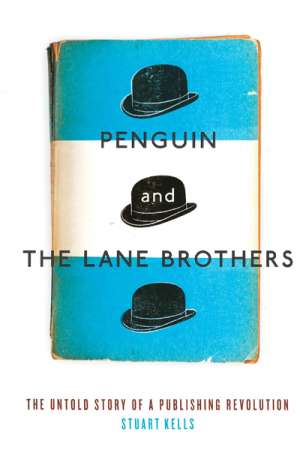Publishing
James Ley reviews 'The Trials of Portnoy: How Penguin brought down Australia’s censorship system' by Patrick Mullins
Okay, I’ll tell you what’s wrong with this country. For a start, we have this profoundly stupid and deeply irritating myth that we’re all irreverent freedom-loving larrikins and easygoing egalitarians, when it is painfully obvious that we have long been a nation of prudes and wowsers, that our collective psyche has been warped by what Patrick Mullins describes, with his characteristic lucidity, as ‘a fear of contaminating international influences’, and that we are not just an insular, conservative, and deeply conformist society, but for some unaccountable reason we take pride in our ignorance and parochialism. And let’s not neglect the fact that we are cringingly deferential and enamoured of hierarchy. Oh yes, it’s all master–slave dialectics and daddy issues around here. Why the hell else would we keep electing entitled, smirking, condescending autocrats?
... (read more)Jacqueline Kent reviews Faber & Faber: The untold history of a great publishing house by Toby Faber
The ‘untold history’ of Faber & Faber should be a cause for celebration. For so many of us, possessing the unadorned, severe paperbacks with the lower-case ‘ff’ on the spine meant graduation to serious reading: coming of literary age by absorbing the words and thoughts of Beckett, Eliot, Larkin, Stoppard, Hughes, Plath ...
... (read more)Richard Walsh reviews 'Do I Make Myself Clear?: Why writing well matters' by Harold Evans
Harold Evans, the celebrated former editor of London’s The Sunday Times and ex-president of Random House USA, is angry. He fulminates against lazy journalism, against the impenetrability of government announcements, and against the pseudo-legal language of terms and conditions we ...
... (read more)Richard Walsh reviews 'What Editors Do: The art, craft, and business of book editing' edited by Peter Ginna
This is an American book and no doubt primarily aimed at those interested in how American publishing works, and specifically at those interested in gaining employment there or upgrading their skills. In Australia it will be of limited use to those with similar ambitions and interests, because the Australian ...
... (read more)Penguin is synonymous with publishing: a firm of vast influence and market share, whose ‘Classics’ imprint essentially arbitrates the modern canon. The founding myth goes something like this: Allen Lane, eccentric genius and publisher, was standing on a railway platform after a weekend with his chum, Agatha Christie. In want of a decent, cheap read, he visited a ...
Ulysses was the first novel to become a celebrity in the mass media age. Its reputation was ‘enhanced’ by its alleged scurrility, its banning in the Anglophone world in both serial and book form, its having engendered legal proceedings centred on obscenity and copyright, and its notoriety as a wilfully difficult text. James Joyce wrote a novel that aspired to map its author’s home city – he claimed its success would be founded on the ability to reconstruct Dublin brick by brick from the novel, should the city cease to exist – and to ‘keep the professors busy for centuries’ (so far successful, one would have to say). George Bernard Shaw called it ‘a revolting record of a disgusting phase of civilization’, while many other writers and critics dissented, claiming Ulysses to be the wonder of the literary world, a work of genius elevated beyond the ephemera of provincial morals and pearl-clutching citizens’ committees. It encompassed a world in its pages, and created it anew. The novel re-imagined modernity, drawing myth and epic and tragedy into its field of vision, and provided readers with the means to see their lives in the same milieu as that of Leopold Bloom, Stephen Dedalus, Molly Bloom, Blazes Boylan, and all the rest. It changed everything.
... (read more)Meet the Publisher | Ben Ball interviewed by Cassandra Atherton
Ben Ball was born in Melbourne in 1970. He grew up in London, New York, and Sydney, and went to school in all of these places. He completed an Arts/Law degree, in Australia, ‘more or less entirely to create the pleasing symmetry B. Ball, BA, LLB’. In the United Kingdom he undertook an M.Phil in Contemporary English Literature. Ball worked in London in publishing for more than a decade, with Bloomsbury, Granta, and Simon & Schuster. He returned to Australia when he began working for Penguin in January 2006. In 2011 he became Penguin’s Publishing Director.
... (read more)One afternoon some three decades or more ago in a stuffy conference room at W.W. Norton & Company, the New York publishing firm where I then worked, the semi-annual sales conference was underway. Assembled were the national sales reps and the marketing team, members of the editorial board, the publicity director and senior publicists, and our president and chairman. A formidable array for editors to face – especially young ones, as I was then – as they presented their upcoming books on the next seasonal list.
One had about three to five minutes tops (though this was often honoured more in the breach, to the exasperation of the audience) to get across to the reps – a fairly jaded lot, but for the most part tolerant of newbies like me – an idea of a book’s content; its main sales points; a run-down of competing titles; any scintillating pre-pub blurbs one had been able to secure; and a conviction-filled guarantee that the author was an absolute certainty to be interviewed on the Today Show.
... (read more)Mary Cunnane, who has worked in the publishing industry since 1976, laments the laziness and irritation of those publishers who resent and underestimate unsolicited submissions from authors
... (read more)'The legendary influence and career of Diana Gribble (1942–2011)' by W.H. Chong
The coffin sat on a chrome trolley at the front of the pews. In the end we only need a box six feet by two, and how small it looks ... the imagination falters.
... (read more)





